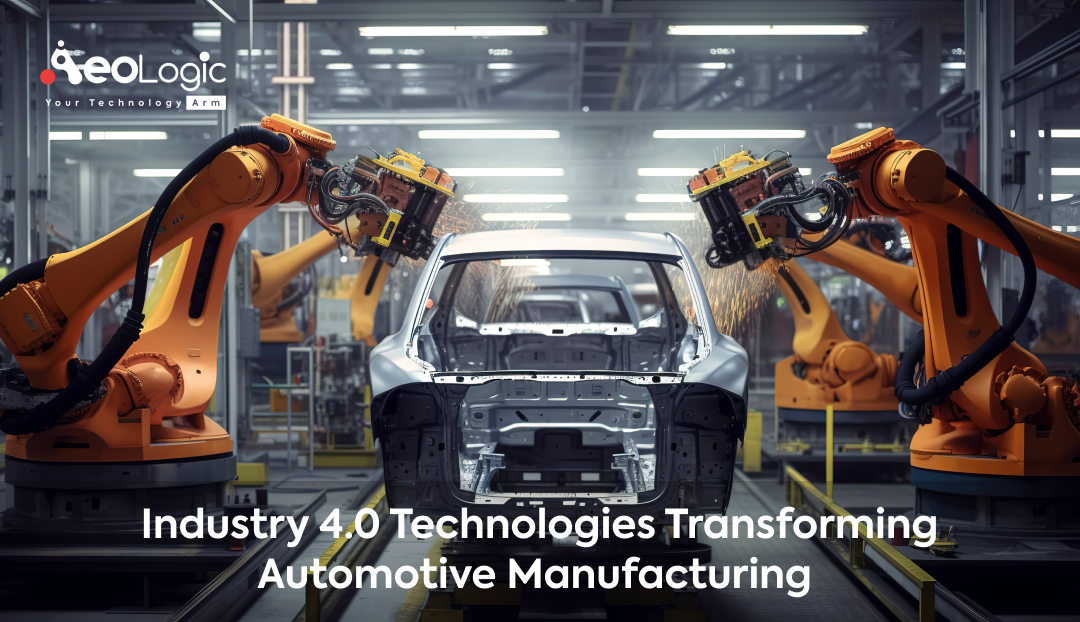Against this background, Industry 4.0 technologies enables higher productivity and quality in automotive manufacturing. A 2022 McKinsey & Company composition stated that “manufacturers in industries for example, automotive and electronics, nearing the tilting point of digital implementation, are achieving indeed quickly and more sustainable change through Industry 4.0 technologies.” The 2023 Deloitte Automotive Supplier Study also linked openings within the assiduity to streamline operating costs and introduce edge, calling out that “suppliers can also look to make critical investments in technology and robotization that will unleash indeed leaner manufacturing processes and set the foundation for long- term competitiveness.”
In the automotive assiduity, using advanced manufacturing technologies similar as Artificial Intelligence (AI), automation, robotics, simulation, digital twins, and others — enable manufacturers to deliver discerned products at scale with effectiveness, speed, and agility.
Also read: How Industry 4.0 is Transforming the Manufacturing Industry
Driving Automotive Manufacturing Excellence Early in the Product Lifecycle
At Aeologic Technologies, we use Industry 4.0 technologies like modeling and simulation early in the product lifecycle to insure that our automotive clients can be assured of higher effectiveness and lower threat further down the line when they ’re producing at scale. For illustration, within design for manufacturing (DfM), modeling and simulation are used to determine how to achieve the loftiest yield with the fastest cycle times well before a product reaches the manufacturing stage. DfM guidance helps companies insure that product designs are manufacturable, barring scrap and backups while maximizing product performance.
Another big benefit of simulation in the automotive assiduity is during the product part approval process (PPAP), which is a strict documented process that ensures products delivered to clients meet their conditions for performance, quality, and delivery. We use simulation to speed this process, structuring out product flows in software iteratively until we can be confident that we’ve the needed capacity and capabilities before we make products in real life.
This approach saves months of time and resources, enabling automotive manufacturers to accelerate coming-generation mobility while maintaining quality, safety, and resiliency. We’re also suitable to streamline periodical product by gathering early input into the process failure mode and effects analysis (PFMEA). By imitating product lines and processes, we can quickly identify areas of highest threat and crucial backups and also develop and apply threat mitigation strategies in advance.
Applying AI for Improved Effectiveness and Quality
From plant line optimization to predictive maintenance and anomaly discovery, AI offers numerous benefits to manufacturing processes. AI can help collect, dissect, and descry machine issues on the factory floor before they be. With significant upstream data from connected machines, AI models can prognosticate when an adverse event might be, allowing manufacturers to help failures and alleviate time-out.
Digital Twins and Closed-Loop Feedback for Process Invention
Digital twins which represent cyber-physical systems where information flows between the simulation and the physical world — enable the coming position of optimization in product design and manufacturing processes. This closed loop approach allows for precise modeling, quality assurance, and optimization of complex manufacturing processes in the automotive assiduity, where safety and trustability are required.
In an increasingly chaotic world, digital twins also allow manufacturers to quickly understand the real threat and impacts of dislocations. For illustration, automotive manufacturers can copy line inflow to understand the implicit effect of dearths and other challenges, also identify other options and optimizations to limit the impact. This helps accelerate the change process and validates changes before perpetration, performing in cost and time savings.
Also read: The Impact of Industry 4.0 on Manufacturing
The Automotive Manufacturing Transformation is Underway
Simulation has helped the businesses identify the suitable inline configuration for specific product and process conditions, as well as to produce different space optimization scripts for new and current systems. Simulation also helps us identify critical characteristics and processes to define quality assurance controls and achieve zero-errors, as well as to determine which industrialization process fits best with product conditions to maximize quality and productivity. Eventually, the use of simulation as a reciprocal stage in DfM will help to validate manufacturability of products and suggest design advancements to clients before products go to full scale product.
To succeed in today’s new period of mobility and technological acceleration, automotive manufacturers must navigate a dynamic business geography to get inventions to request quickly, further reliably, and more sustainably. Industry 4.0 technologies such as robotization, simulation, and digital twins deliver significant competitive advantages for manufacturers — empowering them to not just survive current challenges, but to thrive and play an active part in defining the coming generation of mobility. Get in touch with us to know more about Industry 4.0 technologies.










